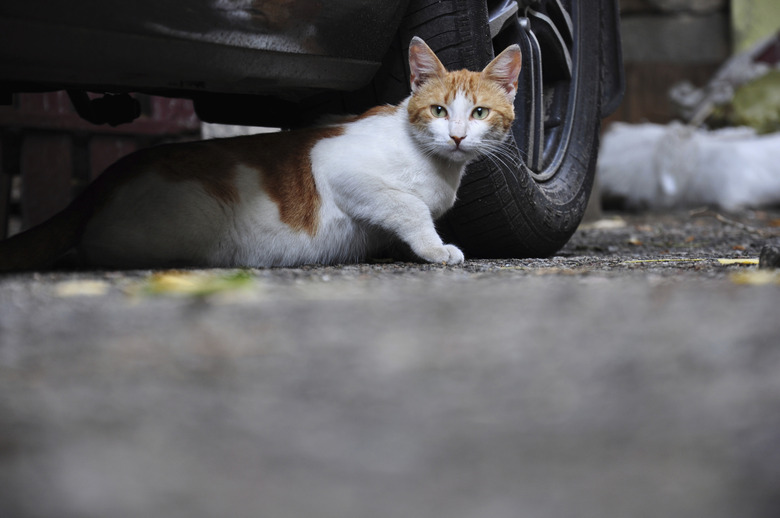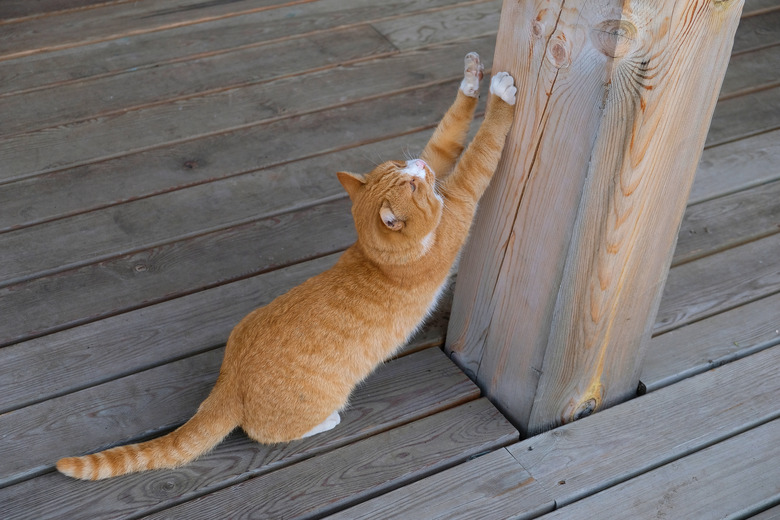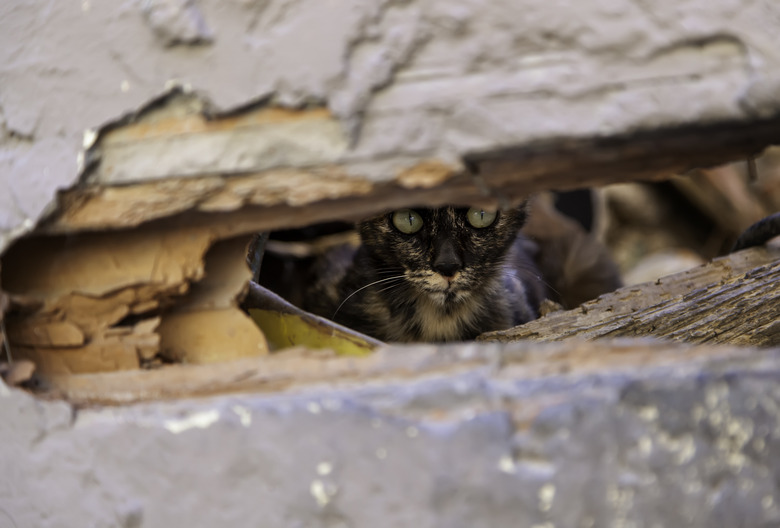How To Get Rid Of Feral Cats Under A House
Feral cats don't make the best neighbors, especially when they move in directly underneath your home. Getting rid of stray cats is not an easy task, but several ways exist to take care of the problem effectively, such as luring them out and creating deterrents. Feral or wild felines are a threat to pets, as well as to your garden and to local wildlife. Spraying on your house and fence can also be an issue.
Getting rid of stray cats
Getting rid of stray cats
When feral cats take up residence near your home, you need to act quickly before the problem burgeons. If a feral or two or three are trying to take up residence under your structure, you can try luring them out with smelly food and blocking their way back. Canned tuna may be more effective than canned cat food for luring them out. You can also try making loud noises, like blasts from an air horn, to scare cats from underneath your home.
If a feral colony has already set up shop, your task will be more involved. Call your local civic authorities to start. Many municipalities have feral cat control programs in place that may call for trapping, neutering, and releasing ferals, or other measures. You have the option of setting up humane traps on your own, although it is possible to catch wildlife in them as well, and you'll have to arrange a suitable place to take the ferals.
Erecting barriers around the house
Erecting barriers around the house
Creating complete and steadfast barriers is a convenient and effective way to keep feral cats from living underneath your house or porch. Always check the area before sealing the entrances to make sure no cats are left inside. If you discover a cat in a crawl space, for instance, use solid material or fine mesh to close every potential path into the space.
The barrier should be constructed in a way that will discourage cats from simply digging under it. It's a good idea to leave a removable "door" in the barrier for the first week or two, so you can remove it if you discover another cat in the enclosed space.
Discouraging feline visitors
Discouraging feline visitors
Wild felines choose homes that give them shelter from the elements and easy access to food. Seal garbage outdoors and empty bird feeders until the colony is gone. Don't leave any cat food out, as this only encourages the unwanted visitors to stay.
Keep your pet cats indoors and avoid direct contact with feral cats yourself. They can carry many dangerous diseases, including rabies and feline immunodeficiency virus. Limit available hiding places around your property by sealing structures, cutting tall grass, and trimming bushes.
Other feline defenses
Other feline defenses
You can discourage cats by equipping your yard with mechanical defenses. Motion-sensing devices that spray water and ultrasound emitters are viable options for keeping cats away. You can set these devices to activate in intervals, allowing resident feral cats a chance to leave.
A chemical cat repellent spray may serve to deter feral cats, although they do not always produce effective results. Place natural repellents, like the peel of citrus fruit, around your property and around the entry points to your crawlspace to discourage unwanted feline interest.


